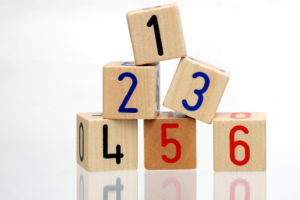Top high schools come with a lot of benefits: intelligent peers, better resources, high expectations, etc. But transferring from a subpar school to a top one isn’t necessarily a good move.
That’s because a student at the top of his or her class in a less-competitive school might be average, or even below average, after transferring. And new research co-authored by Jörg Spenkuch, assistant professor of managerial economics and decision sciences at the Northwestern University Kellogg School of Management, found that academic rank matters quite a bit.
While parents with smart children may think a top school is a better fit, Spenkuch says potential negative effects are worth paying attention to. Even though a child’s intelligence doesn’t change after switching schools, downgrading in academic rank can increase risk of academic and behavior problems — which are usually what parents are trying to avoid when they switch their child’s school.
HIGHLY RANKED HIGH SCHOOLERS GO TO TOP BUSINESS PROGRAMS
And while high school rank may or may not directly affect college admissions, a Poets&Quants survey of undergraduate business programs found that the vast majority of students in top business programs were in the top 10% of their high school classes — regardless of whether they went to an acclaimed high school or a struggling one.
At the University of California-Berkeley Haas School of Business, 98% of students in the Class of 2014 were in the top 10% of their high school graduating classes. Following closely behind, 95% of the University of Pennsylvania Wharton School’s Class of 2014 was from the top 10%. Both Haas (No. 5) and Wharton (No. 3) were among the very best schools in P&Q’s 2016 undergraduate ranking.
Other schools with high percentages of top 10% students include Washington University in St. Louis’s Olin Business School, which P&Q ranked No. 1 overall, as well as No. 8 University of Virginia’s McIntire School and No. 6 Cornell University’s Dyson School.
In fact, of the top 50 schools that participated in the P&Q ranking, the lowest percentage of top 10% students was 23.5% — still nearly a quarter of the student body — at the Isenberg School of Management at the University of Massachusetts-Amherst, which ranked 34th.
RELATIVE STANDING MATTERS
“We had this idea that within peer groups — even within settings that are very homogenous — people sort into cliques,” Spenkuch says. “We were trying to better understand that, and in that process, figured out that relative standing had an impact on academic achievement and behavior.”
Researchers found that people like to do things they’re good at. And “good,” Spenkuch says, is usually defined by those with whom we socialize. For example, when Spenkuch was completing his Ph.D. at the University of Chicago, he was surrounded by very intelligent people. But within that large group, there were people who were considered smarter, and people who were considered less smart.
“It’s fun to do something that you’re good at. And if you’re the smartest kid in the classroom, you’re probably going to invest more into academics,” Spenkuch says. “But if someone is pretty smart, but the other children are even better, it’s easy to see how that could cause him or her to act out, or to say they don’t care about math, or that they only care about baseball.”
STUDY METHODOLOGY
Spenkuch’s team used data from New York City public schools, which tracked students as they switched from elementary to middle school between the 2003-04 and 2008-09 school years. Teachers recorded incidences where students acted out or misbehaved, and as predicted, a drop in class rank appeared to make students act out more.
The team also analyzed data from more than 24,000 students from the National Educational Longitudinal Study, collected during the eighth and 10th grades, and again found that academic ranking mattered. In fact, they found that students’ behavior was tied so closely to academic ranking that it would change between subjects: If a student was in the 75th percentile in English, but only in the 25th percentile in math, teachers were 10% more likely to report a problem for that student in the math class than in the English class.
BIG FISH IN A SMALL POND
Spenkuch’s paper is currently going through the peer review process, and right now he and his team are focusing on publication. But he says there will certainly be further research, and as soon as this study is complete, they’ll begin thinking about what’s next.
In the meantime, he says, they’re not advocating that people send their children to inferior schools.
“Of course at a better school you’ll interact with smarter classmates, you’ll have more resources, better teachers,” he says. “But when parents do send their children to better schools, it pays to be aware that not everything will be hunky-dory. If parents are aware of this, they may be able to deal with it better.”
(See following page for business schools with a majority of their students having ranked in the top 10% of their high school class)












